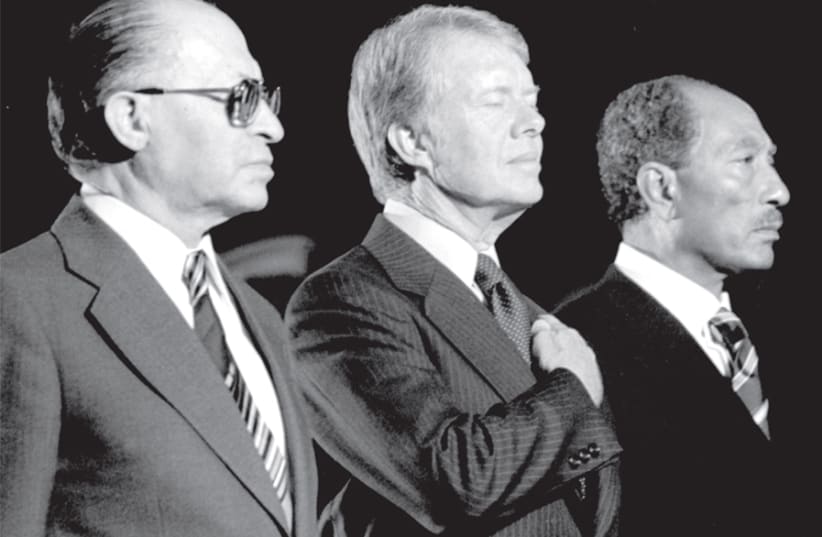The Begin Doctrine was born almost exactly 40 years ago, on 7 June 1981, when then-prime minister Menachem Begin sent Israeli fighter planes to bomb the Osirak nuclear reactor just outside of Baghdad. It was a decision he did not take lightly. Nothing like this has ever been attempted. Success was by no means assured and Begin and his advisers feared that not all the pilots involved would return. He also knew the operation would be condemned around the world, including in Washington.
Ultimately, Begin’s decision to press ahead can be summed up in two words: Never Again.
At a meeting with American Jews in May 1981, Begin expounded on the main lessons of the Holocaust:
“…if an enemy of our people says he seeks to destroy us, believe him. Don’t doubt him for a moment… Never pause to wonder what the world will think or say.”
Begin’s parents and his brother were among the 90% of Polish Jews that would not survive the Holocaust. And here was Saddam Hussein threatening to “drown Israel in rivers of blood.” This was genocidal language that evoked not just the Nazis, but Arab leaders of yesteryear (and indeed is echoed today by the Iranian regime).
One of Begin’s aides recalled riding in a car with him in the days leading up to his fateful decision. The matter was clearly weighing on him. As they passed children playing in a in a playground, he asked out loud, “Can I ignore the fate of little Sara-le and Moshe-le?” He saw the prospect of an Iraqi bomb as a threat, not just to national security, but to the future of Israel’s children. His imagining of these children as Yiddish-speakers with eastern European names is even more telling; the shadow of the Holocaust hung over him as he contemplated this fateful decision.
Ultimately, the decision was passed unanimously by his cabinet. Although he only needed a majority of his fellow ministers to agree, so momentous was the decision that he sought that rarest of things: an Israeli cabinet consensus. He eventually secured it despite the initial doubts of two senior ministers – Yigael Yadin and Yosef Burg. Both were finally convinced after Begin brought them into a private meeting with the IDF chief-of-staff and the commander of the Air Force.
Today, the Begin Doctrine is itself a consensus issue. Different politicians and security experts may disagree on the means, but there is an understanding that Menachem Begin’s determination was the right one. Since that day, 40 years ago, Never Again is not just a Jewish slogan, it’s an Israeli promise.
The writer is a senior fellow at the Menachem Begin Heritage Center in Jerusalem. For details about the Begin Symposium on 6 June, and to register to join the event on Zoom, please visit www.begincenter.org.il.
